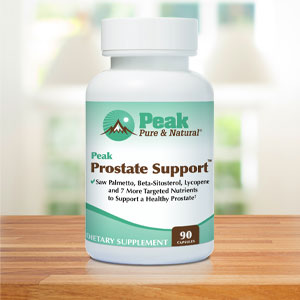Get Easy Health Digest™ in your inbox and don’t miss a thing when you subscribe today. Plus, get the free bonus report, Mother Nature’s Tips, Tricks and Remedies for Cholesterol, Blood Pressure & Blood Sugar as my way of saying welcome to the community!
A link between surgery, Alzheimer’s and a vitamin that may help

Alzheimer’s disease is one of the most significant personal and public health challenges. In 2020, an estimated 5.8 million Americans aged 65 and older lived with Alzheimer’s.
Unfortunately, research does not look to be terribly close to finding a cure. However, it has resulted in identifying various factors, including lifestyle interventions, certain foods, vitamins and nutrients that could help stave off the disease, as well as medications that may slow its decline.
Of course, there are also things to avoid — like salt and sugar — to decrease ending up with this dreaded disease. Another you may not have heard much about is surgery. For many years, surgery has been associated with cognitive decline, but few studies have directly linked it to Alzheimer’s — until now.
Understanding the risks of surgery on an aging brain
The thought of having surgery can be somewhat intimidating, especially for middle-aged and older adults because there is a higher risk of complications during and after surgery. There is also an increased risk of cognitive decline if you are middle-aged and undergoing anesthesia and surgery, and even worse…
A study carried out by researchers at the Marque’s de Valdecilla-IDIVAL University Hospital, in collaboration with researchers at the University of Bonn Medical Center, suggests that major surgery is an accelerator of Alzheimer’s disease.
The first author of the publication, Carmen Lage, stated that relatives have long discussed memory problems that began after hospital admission or surgery for a family member. Carmen’s colleagues started to explore why and asked: is this just a recall bias, or has surgery triggered symptoms in a previously affected brain?
To try to answer the question, the researchers wanted to explore the relationship between amyloid-B levels present in cerebrospinal fluid and surgery.
Amyloid-B is a protein that accumulates excessively in the brains of Alzheimer’s patients. With age, these amyloid-B deposits increase and are present in up to one-third of the population after age 65. What’s not clear about amyloid-B is why in some carriers the disease will progress to dementia, while in others it remains inactive.
Healthy individuals over the age of 65 were given cognitive tests before undergoing orthopedic surgery, and samples of CSF were taken to determine amyloid-B levels before anesthesia. After 9 months, the same cognitive tests were given, and the result was that half of the patients’ cognition worsened post-surgery. The patients with altered amyloid-B levels were exhibiting memory problems compatible with the onset of Alzheimer’s disease.
Carmen Lage stated, “Before surgery, the memory test scores of the subjects with abnormal amyloid B levels were indistinguishable from those of subjects with normal levels, and after surgery, they were significantly worse.”
Surgery or Dementia?
This study concluded that major surgery could cause a variety of cognitive alterations depending on the previous presence or absence of Alzheimer’s pathological changes.
Because of this risk, will surgery criteria for older patients change?
According to Dr. Pascual Sanchez-Juan, principal investigator of the study, “The progressive aging of our societies and the improvement in surgical technique mean that more and more elderly and fragile individuals are undergoing surgery. Pre-surgical evaluation always assesses whether cardiac or respiratory function will withstand the surgery, however, the potential consequences of the operation for the patient’s brain are not usually determined. Our results would advocate that pre-surgical evaluation studies include cognitive tests, and even the analysis of Alzheimer’s biomarkers, especially once these become widely available in plasma.”
If you’re a senior facing surgery or have concerns about an older family member that may be considering surgery, talk with a physician about these concerns. Ask questions to determine the necessity of the surgery or explore other options, if available.
If surgery is unavoidable, consider what you can do in advance to help support your mind and body. One way is to have your vitamin D levels checked to see if you’re deficient, then supplement to bring them up to healthy levels.
Here are two reasons we think vitamin D could be helpful, backed by research:
- A study at the Cleveland Clinic shows that people who are low in vitamin D have more chances of encountering significant health problems after surgery. The research measured hospital patients’ blood levels and found a vitamin D deficiency is linked to difficulties after surgery, including in-hospital death, serious infections, and serious cardiovascular events.
- A 2011 study published in the American Journal of Alzheimer’s Disease and Other Dementias found that patients with Alzheimer’s Disease have a high prevalence of vitamin D deficiency, which is also associated with impaired cognitive function performance in older people. They also state that it can improve cognitive function in some people with Alzheimer’s.
Editor’s note: While you’re doing all the right things to protect your brain as you age, make sure you don’t make the mistake 38 million Americans do every day — by taking a drug that robs them of an essential brain nutrient! Click here to discover the truth about the Cholesterol Super-Brain!
Sources:
Cognitive decline in the middle-aged after surgery and anaesthesia: results from the Wisconsin Registry for Alzheimer’s Prevention cohort — Association of Anaesthetists
A new study shows the relationship between surgery and Alzheimer’s Disease — EurekAlert!














